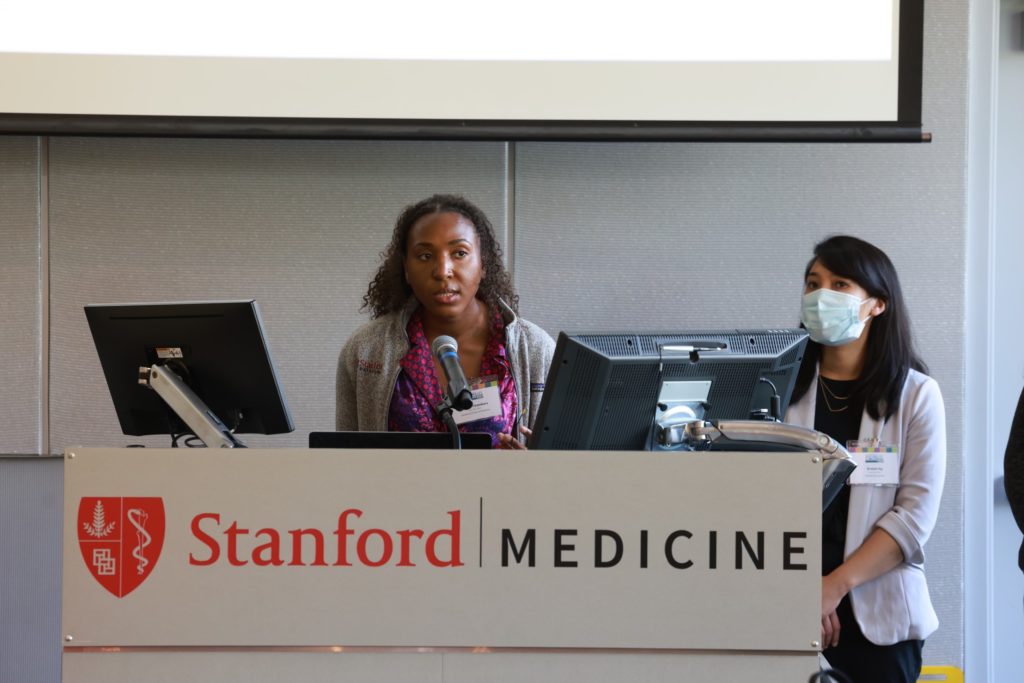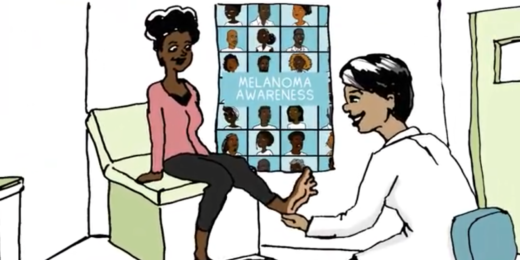If your doctor walked into the clinic with facial piercings, would you think them unprofessional? What if they had pink hair? If those doctors provided outstanding medical care, what other factors would play a role in your sense of their professionalism?
What exactly does it mean to act 'professionally'?
These questions and more were discussed at a recent Diversity and Inclusion Forum at Stanford Medicine among doctors, residents and health care providers.
During the forum -- a culmination of the Leadership Education in Advancing Diversity (LEAD) program, which aims move health equity forward in medicine -- participants discussed the idea that traditional concepts of professionalism lack inclusivity, favor the majority and, in that sense, can perpetuate harmful stereotypes that are rooted in racism, sexism and other discriminatory ideologies.
Tiffany Chambers, MD, a pathologist and transfusion medicine fellow at Stanford Health Care, and Kristen Ng, MD, a clinical instructor and simulation fellow in emergency medicine, both of whom helped lead the session, weighed in on some of the historical -- and problematic -- roots of professionalism and discussed whether they think it's possible to change how we think about professionalism in health care.
How do you define professionalism in medicine?
Ng: We can think about professionalism in three ways: The first is virtue-based, which means putting aside self-interest to act in the best interest of the patient. This is what brings doctors into the profession and what keeps us here. We are a community with a code of ethics.
One can, theoretically, go into a hospital anywhere in the world and trust that the doctors are bound by a certain code. This is a beautiful thing, and it sustains us, but even that can be harmful if taken to an extreme. Virtue-based conceptualizations of professionalism could be used to justify behaviors that lead to burnout, or expectations that one should sacrifice mental or emotional well-being for their patients.

The second is behavior-based. This focuses on observable behaviors: how you dress, how you speak, how you act, how you present yourself on social media. This is where harmful stereotypes or biases can emerge.
The third is based in the formation of one's professional identity. This leads to a process of incorporating the values of the physician community into one's own values and identity.
You can imagine how this process might be difficult if there is dissonance between your core values and motivators and what the majority largely deems professional.
Chambers: There's also the historical context of professionalism. The professionalization of medicine in the early 20th century eschewed having diversity among practitioners -- such as folk healers and midwives -- creating a white, male-dominated medical profession, which largely excluded women and Black people.
What that boils down to is an atmosphere in which white, male heteronormative characteristics are often seen as more professional, and characteristics or cultural norms of individuals with marginalized identities are considered unprofessional.
Why is the term professional problematic?
Ng: I don't think there's an inherent problem with the term professional or professionalism. I think there is a problem with the way certain conceptions of professionalism are enforced. When we hear descriptions of a professional, it's traditionally someone in a suit with straight hair, speaking a particular type of English.
This sets up a cognitive dissonance that many students and trainees have to navigate as they form their professional identities. What's expected of our behavior during interviews and training often differs from the way we normally present ourselves. Trying to fit the norms and unrealistic expectations of what it means to be a "professional" can be exhausting and disillusioning, and it can lead to burnout.
Chambers: Navigating professionalism is challenging for individuals with marginalized identities. You want to be true to your values and identity, but sometimes that conflicts with perceived values in professional medicine. For instance, hair. I used to relax my hair with a chemical straightener and when I decided to stop, even my parents were opposed because they knew it would be harder for me to be deemed professional.
How do we address such a complex, systemwide issue?
Chambers: It starts with reflection. We have to understand how we are personally affected before we can create change. Ask yourself, "Why am I straightening my hair for this interview?"
And that personal understanding and reflection goes both ways -- people with privileged identities need to reflect on their identity and values; it's important to understand how you might benefit from the system and how you could be perpetuating exclusionary values and practices. It has to start with all people contending with these issues.
Ng: We need to reevaluate what it means to foster an inclusive professional environment. Part of that is questioning our own biases and assumptions: Are our values based on virtue? Or are they perpetuating stereotypes? We can then work to redefine professionalism in a more inclusive way that advances patient welfare, patient autonomy and social justice.
In doing so, the goal is not to pressure others to adhere to a new definition of professionalism, but rather, to expand the definition of what it means to be professional. We all have to be open to conversations and be willing to negotiate and listen so that we can live and work authentically.
Photo by zerophoto






